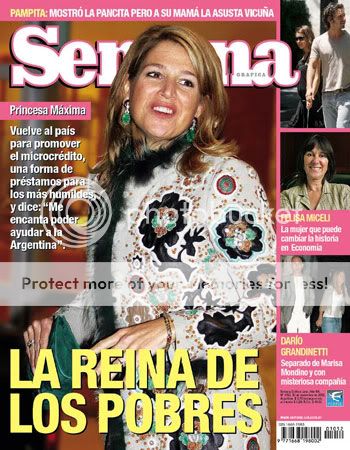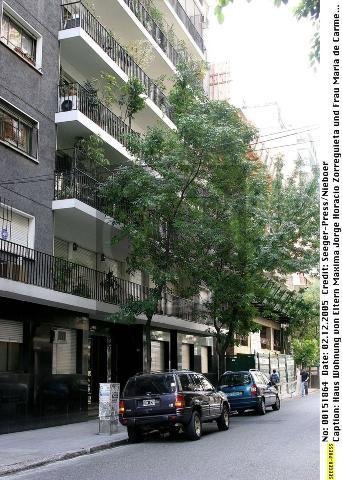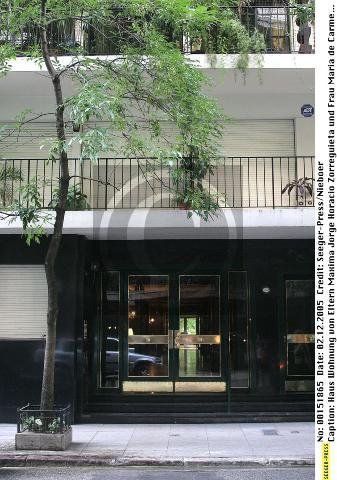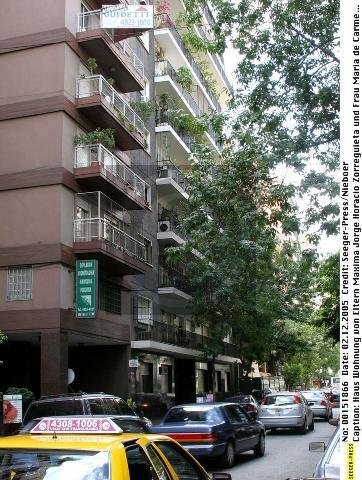And Lotte translated the interview in 'La Nacion' as well:
Translation:
[SIZE=+1][/SIZE]
[SIZE=+1]
"I'm overly happy to do something for Argentina"[/SIZE]
She'll come to promote microcredit
"In Argentina there's much to do in the microcredit sector, since the country has one of lowest rates of access to financial services of Latin America."
- What do you expect from this first working trip to Argentina?
- I hope I’ll be able to talk with all people involved in the microfinance sector in the country. The idea is to improve public knowledge about what a wider access to financial services means in economic and social development. For instance, we’ll talk with the national microfinance committee, with Banco Central [Argentina’s Federal Reserve Bank], with associations that congregate microfinance institutions, with banks, as well as with government officials and politicians, in order to see how one can help the development of this sector.
- Why did you decide to be part of this advisory board? Were you invited to or did you volunteer?
- I was asked to, but I would have gladly volunteered! I decided to be part of this group because I firmly believe in the positive effect of microfinances as an antidote against poverty for three reasons:
Firstly, because I believe that it’s much better to give people the opportunity to earn their own money, instead of donating money to them. When one is given a microcredit, one is given the opportunity to multiply his efforts to get out of poverty. This person knows better than anybody else how to spend or invest the money and to determinate what he’s most lacking. Moreover, money generated from an established activity means a constant income to the family.
Secondly, the trust placed by the institution lending the money and the generation of his own income dignifies the person. This is very important, because out of it a much valuable chain of respect is formed in that sense: “I’m respected, and because of that, they lend me money, but me too, I have to respect them and pay the money back on time.” And that kind of respect relocates from business to civil order. In Africa, for instance, the fact the women can generate their own income has given them a voice inside their community, something that they didn’t have before. Microfinances bestow the nowadays much talked about “empowernment”.
Thirdly, microfinances have developed in such a way that offering a necessary product to the population in need can also be something profitable. Which means that the sector’s growth won’t depend on donations.
- Is it the first time that you accept to play an advisory role or have you ever done it before?
Well, this is the first time I work as an advisor to the United Nations, but I have performed as a counselor in other themes, such as the integration of immigrant women in Dutch society.
- Did you ask to travel to Argentina?
- Actually, we decided that with other counselors. In Argentina, there’s much going on in this sector, but there’s still much to be done. The country has one of the lowest rates of access to financial services in Latin America. In order to change a bit this situation, the microfinance sector in Argentina could also learn from other Latin American countries which are in a more advanced stage concerning this theme.
- Would you like to do something for Argentina in your new position?
- I’m of course overly happy to be able to do something for Argentina. And that’s why I’ll be there, for I believe that, if I can add to the development of the microfinance sector in the country, I’ll have contributed with my grain of sand to increase the chance of many Argentineans to escape poverty.
- By means of which mechanisms can the access of population to microcredit be facilitated?
- The microcredit system is a mechanism which differs much from conventional banks. This implies that one has to be where the client is, which often means that one can’t have a branch in every corner, since it’s expensive, especially when we’re talking about very small products, low credits and deposits. That’s why another kind of client approach has to be developed, in order to make access easier. There are many examples, like working with post offices (in the Brazilian Northeast), or having a bus that goes from one place to the other (in Kenya, the Equity Bank) or simply a credit officer that can cover many places and talk with clients. In the Philippines and Bangladesh, money transfers per telephone or PDA are already used. The microcredit system must grow. Right now we have in Argentina between 22,000 and 25,000 clients, which is still few. We lack capital, knowledge, technical experience and a favorable regulatory frame.
- How can microcredit help people?
- Experience has proven that microfinances can help increase the income of the needy. They can help create sustainable businesses for this sector of population and reduce their vulnerability to external impact. Socially, it’s an instrument that grants power to the poor, first and foremost to women, and help them change their situation inside the community. The whole family benefits from the income rise, since one invests in better food, better education, better housing and better health. Finally, it’s about dignifying people, giving them the opportunity to multiply their efforts to get out of poverty. Moreover, clients are also advised on how to increase profit in their businesses.
- How can microcredit help fight poverty?
- The comparative analysis of the increase in annual average poverty rates, the availability of private credits and gross national product in the last 20 years prove that countries with the highest rate of private credit could reduce poverty faster. An example: in Chile, where private credit rate is 54% of GNP, poverty rate decreased 14% between 1987 and 2000. On the other hand, in Peru, where private credit rate is only 13% of GNP, poverty rate increased 19% between 1985 and 2000.
But I always say that microfinances are not a panacea to fight poverty. Many more elements, such as education, health and other infrastructural goods are needed? Microfinances can promote economical growth and all its social detachment through the backing of microentrepreneurs, who are, after all, the motor of economy.
link in spanish:
http://www.lanacion.com.ar/exterior/nota.asp?nota_id=759886




